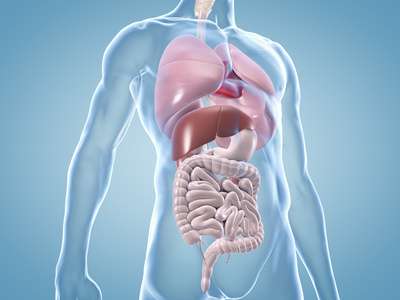Initial successes in treating a hitherto incurable liver disorder

Primary sclerosing cholangitis is a currently incurable liver disorder, primarily affecting younger adults aged between 30 and 40. A European multi-centre Phase II study led by MedUni Vienna in close collaboration with MedUni Graz and the Medical University of Hannover has now shown that this disease could be cured using a synthetically manufactured bile acid (active agent: nor-ursodeoxycholic acid/nor-urso).
"Primary sclerosing cholangitis is one of the last big 'black boxes' in hepatology, one of the last unsolved puzzles," says Michael Trauner, lead investigator and Head of the Division of Gastroenterology and Hepatology at MedUni Vienna.
"If we succeed in curing it with nor-urso, that would represent a remarkable breakthrough in hepatology."
The Phase II study conducted with 161 patients from 45 centres in twelve countries – apart from Austria and Germany, Belgium, Denmark, the UK, Hungary, Lithuania, the Netherlands, Norway, Spain, Finland and Sweden also took part – reinforced the hepatologists' hopes: "There were significant improvements in liver parameters for all tested dosages," explains Trauner. "That is a very promising result. It means that we can now start a Phase III study to investigate the long-term effects on disease progression."
In the study, which has now been published in the prestigious Journal of Hepatology, the scientists showed that nor-urso is clinically effective, safe and well tolerated. It works directly on the biliary tract and flushes toxins out of the bile ducts by increasing bicarbonate-rich bile flow. Says Trauner: "The active agent cycles between the gallbladder and liver and works precisely where the inflammatory processes are taking place, namely right in the biliary tract." The results suggest that nor-urso could also help to halt fibrosis of the liver and improve connective tissue. This will now be investigated in a clinical Phase III study, which will take about three years to complete.
Primary sclerosing cholangitis, the cause of which is hitherto unknown, is regarded as a rare disease with a poor prognosis, since it can progress into fibrosis and cancer of the biliary tract. The disorder is characterised by disrupted bile production. It affects 0.01% of the population.
More information: Peter Fickert et al. nor Ursodeoxycholic Acid Improves Cholestasis in Primary Sclerosing Cholangitis, Journal of Hepatology (2017). DOI: 10.1016/j.jhep.2017.05.009
















